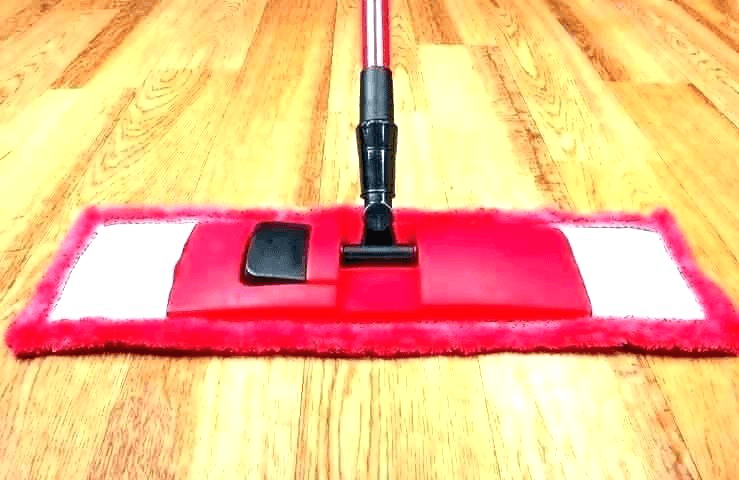Hardwood floors are quite the sight to see for many homeowners. They make you stop and take in how beautiful they can look. They give a timeless, classic, elegance to your home – but maintaining it can be a pain due to the amount of work they require. Like any other floors, you want to keep your hardwood surfaces as clean as possible without damaging them, so you might decide to grab your broom and sweep instead of mopping them (since water is quite risky on hardwood).
So, you decide to sweep, and sweep some more, then you notice there’s still some dirt left – so you take your vacuum cleaner and vacuum the space. That sounds fine, right?
Depending on your vacuum, it might be a choice that you regret. We’ll get into that later. However, sweeping is a cheaper and less efficient/effective option. Vacuuming is a much more effective option. To understand why, it’s important to know the differences between the two methods, even though they are both have their own pros and cons.
Why is Vacuuming Better?
Your dust mops and brooms will move and collect debris and dirt on the surface of your floor, until you move them into a dustpan. Sweeping up dust and dirt has been done for much longer than vacuum cleaners have been around, but it’s far from the most effective way of removing dirt from your floors – regardless if you have bare floors or carpets.
Whenever you sweep, dirt and debris become airborne. Some particles will fall into corners and crevices along the walls and all around the floor. If you mop immediately after sweeping, the water will mix with this dirt and form leftover mud particles. This is why the water you use to mop eventually becomes brown, cloudy, or muddy after some sweeps.
When you use a vacuum cleaner, you have less chances of having airborne dust particles, since it’ll pull out dust and debris from corners and crevices and suck it inside a self-contained space. However, that doesn’t guarantee that all vacuums will work well for you; you need to choose the right one that cleans your specific space as efficiently as possible.
Which Vacuum Cleaners Are Safe for Hardwood Floors?
When you have a wood floor, the idea of using a bucket of water and a wet mop to clean your floors might seem crazy. However, in a similar way, certain vacuums are not meant for hardwood floors and could potentially cause scratches and damage them. Why is that?
This is because many vacuum cleaners have beater bars, which is the part of the vacuum that digs deep into your carpets and sucks up as much debris and dust as possible. If you use a vacuum with a beater bar on your hardwood floors, you’re going to seriously damage the varnish, removing the inherent luster it has. You will likely also scratch up your floor as well.
However, with all the above said, there are still vacuums that work exceptionally well on hardwood floors. If you have a vacuum and it allows for it, simply removing or turning off the beater brush is usually sufficient for protecting your wood floors. The other alternative is to use canister vacuums or stick vacuum cleaners that are specifically designed for bare floors, since they won’t have a beater bar/brush. Regardless, vacuums will clean much better than brooms by a significant margin. If you truly want to have a clean home, having a vacuum cleaner is one of the best options you can make for your health and home.
Advantages of Brooms and Vacuums for Hardwood Floors
Broom Pros
- Almost completely silent
- Allow you to clean up immediately
- No need for special attachments
- No need to worry about new bags/additional purchases
- Does not rely on electric power
- Takes up little space
- Very inexpensive
- Can reach just about any corner
- Less likely to leave scruff marks
Vacuuming Pros
- Much less labor intensive, especially if you have a robot vacuum
- Cleans your floors faster
- Deep cleaning, captures dust particles
- Have attachments that are great for multiple surfaces
- No need to continuously bend over to empty your dustpan
- Helpful for people with allergies or other respiratory illnesses
- Clean other areas of your home, under the couch, between the car seat, etc.
- Easy to transition to cleaning carpets and rugs
- Increases the lifespan of your floors
How Often Should You Vacuum?
The answer to this question depends on your home size, how clean you are, and how clean you prefer to keep your home. Most people vacuum about once a week, which is sufficient for most people. People with pets might vacuum a bit more often than others who don’t. Then, if possible, mop the floors once a week to take care of the spills and dirt that your vacuum couldn’t clean.
Final Thoughts
So, all of this information brings us back to the question: should you sweep or vacuum your floors? Well, the answer really depends on the mess you’re dealing with, as well as your own preferences and how clean you prefer your environment to be. For hardwood floors, a combination of vacuuming and sweeping is ideal, but you also need to be careful with the vacuum cleaner you decide to use. If you want to protect your hardwood floors, a canister vacuum is your best bet.

is there anyone who actually still uses a broom if they do have a vacuum? haha
Believe it or not, yes, there are still some people who prefer to use a broom. Maybe the mess is small and they don’t want to lug their vacuum out.